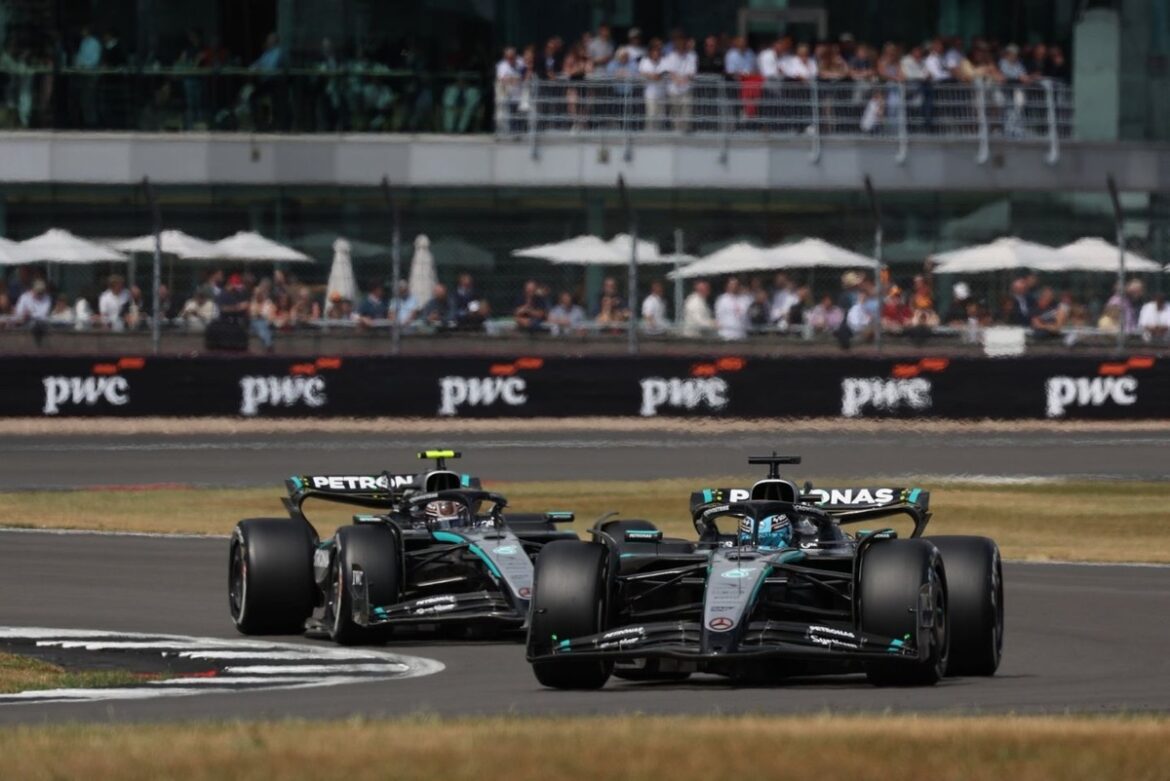The Challenging British Grand Prix for Mercedes: A Deep Dive into Strategy Missteps
The British Grand Prix at Silverstone proved to be a challenging affair for Mercedes, highlighting the complexities of race strategy in unpredictable weather conditions. George Russell, one of the drivers for Mercedes, encapsulated the essence of the race with the phrase, "When it rains, it pours." This sentiment resonated throughout the team as they faced a series of errors that negatively impacted their performance on the track.
Qualifying: A Mixed Bag for Mercedes
Mercedes entered the British Grand Prix with high hopes, yet the qualifying session left much to be desired. George Russell secured a respectable fourth position, but his teammate, Andrea Kimi Antonelli, found himself in 10th place due to a three-place grid penalty carried over from the previous race in Austria. This penalty was a setback for Antonelli, who had aimed for a stronger starting position. The team’s performance during qualifying raised concerns about their potential success in the race, foreshadowing the challenges that lay ahead.
Race Day: A Series of Unfortunate Decisions
As race day approached, the weather became a significant factor, with rain expected to play a crucial role. The team’s strategy was put to the test almost immediately. Russell, after starting the race, faced considerable difficulties as conditions deteriorated. The team’s decision-making came under scrutiny, particularly regarding their tire strategy.
Toto Wolff, the team principal of Mercedes, later described the decision to pit Russell after the formation lap to switch from intermediate tires to slicks as “terribly wrong.” This miscalculation not only affected Russell but also had dire consequences for Antonelli, who was forced to retire from the race after a collision with Isack Hadjar. The combination of poor weather and strategic errors left the team scrambling for solutions.
The Impact of the Virtual Safety Car
The race took a turn when a virtual safety car was deployed, prompting further strategy discussions. Antonelli’s early pit stop under this virtual safety car only exacerbated the team’s misfortunes. It was a pivotal moment that could have altered the course of the race for both drivers. Wolff pointed out that the team should have implemented a split strategy, which could have positioned Antonelli more favorably in the standings.
This decision-making process during the race highlights the complexity and pressure of Formula 1 strategy, where the stakes are incredibly high, and the margin for error is minimal. Analyzing the data and making quick decisions is crucial, and in this instance, the team faltered.
Russell’s Perspective on Strategy
After the race, Russell defended the initial decision to pit for slicks, arguing that the conditions had briefly seemed favorable. He noted that the track had been dry for approximately 25 minutes, and the team had a significant pace advantage over those on intermediate tires when the virtual safety car ended. Russell believed that had they not made the switch, they could have regained a competitive position.
He expressed his frustration with the outcomes, stating, “When it rains, it pours, and everything just went against us.” His comments reflect the emotional toll racing can take, especially when decisions made in seconds can lead to vastly different results.
The Downfall of Strategy
The series of missteps during the race painted a grim picture for the Mercedes team. Wolff acknowledged that the initial decision to switch tires was the catalyst for a chain of poor choices. This acknowledgment of failure is vital in a sport where every decision is scrutinized, and learning from mistakes is crucial for future success.
Russell’s subsequent decision to push for slicks again later in the race was seen as a gamble. Despite warnings that it could be a "suicidal" move, he felt compelled to take the risk, given the circumstances on the track. This desire to stand out and make bold decisions ultimately did not pay off, but it reflects the competitive nature of racing and the instinct to seize opportunities, even when they may not be the safest choices.
The Aftermath: Reflecting on the Race
In the aftermath of the race, the Mercedes team faced a lot of reflection. Wolff emphasized the importance of analyzing what went wrong and ensuring that lessons are learned for the future. The team’s struggles at Silverstone were not solely about tire choices but also about understanding the dynamics of race strategy in adverse conditions.
Russell ended the race with just one point, a disappointing outcome considering the team’s ambitions and expectations. Meanwhile, Antonelli’s early retirement due to the collision was a bitter pill to swallow for the entire team. The challenges faced at Silverstone were a stark reminder of the unpredictability of motorsport and the critical role of teamwork and communication in navigating that unpredictability.
Lessons Learned: The Road Ahead for Mercedes
As Mercedes looks to the future, the lessons from the British Grand Prix will undoubtedly inform their strategy moving forward. The team understands that they must remain agile in their decision-making, especially in races where conditions can change rapidly. The importance of effective communication between drivers and the pit wall cannot be understated, as this can make the difference between a successful race and a disappointing one.
The Silverstone race serves as a case study for teams in the sport, showcasing the need for adaptability and sound judgment in the face of challenging circumstances. Mercedes will likely analyze the race data extensively, looking for ways to improve their strategies and performance in upcoming events.
Conclusion: A Moment of Reflection for Mercedes
The British Grand Prix was a tough lesson for the Mercedes team, highlighting the complexities of racing strategy in fluctuating weather conditions. As they regroup and prepare for the next challenge, the insights gained from this race will be crucial in their quest for success in the competitive world of Formula 1. The road ahead may be fraught with challenges, but with each race comes the opportunity to learn and grow as a team.
